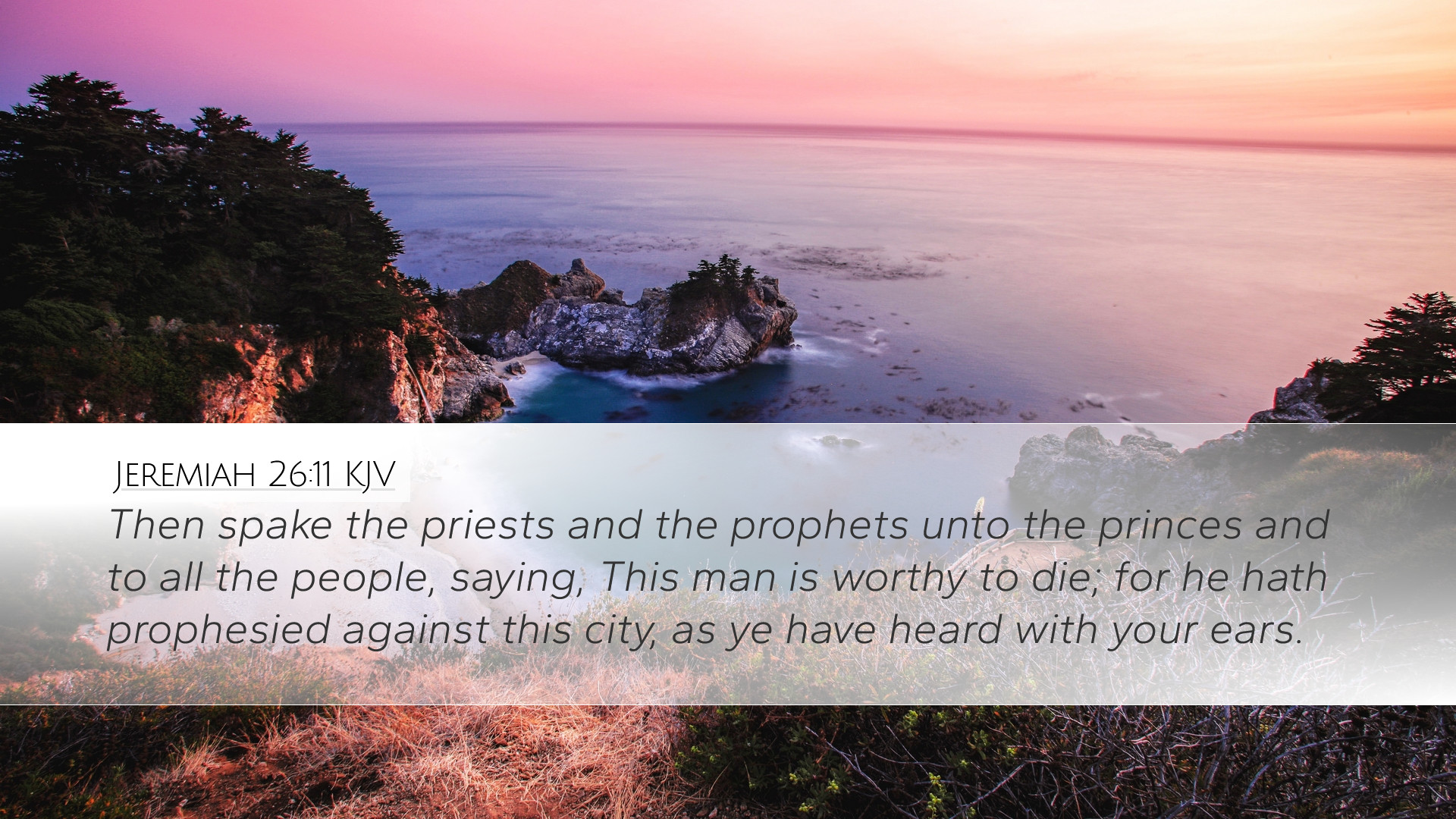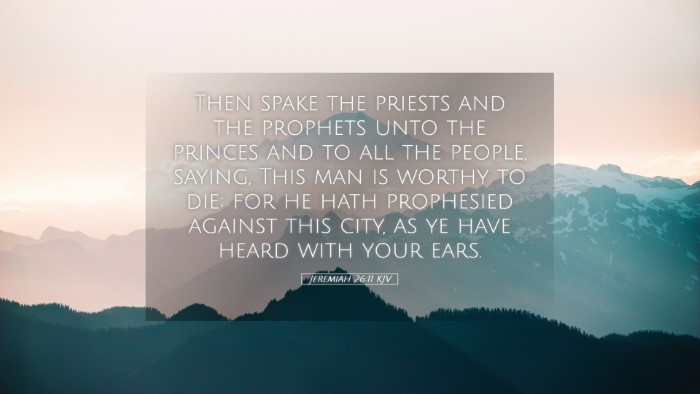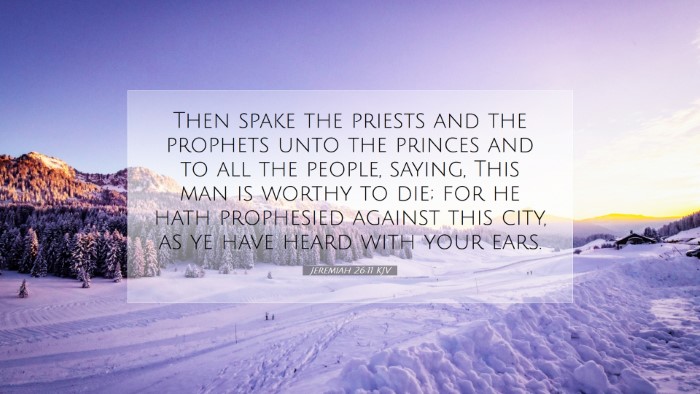Commentary on Jeremiah 26:11
Verse Context: Jeremiah 26:11 states, "Then the priests and the prophets said to the princes and to all the people, 'This man is worthy to die; for he hath prophesied against this city, as ye have heard with your ears.'" This verse captures a pivotal moment in the prophetic ministry of Jeremiah, which reflects the tension between prophetic truth and societal rejection.
Introduction
The book of Jeremiah provides a profound insight into the struggles of a prophet called to declare God’s message in a time of impending judgment. Jeremiah's ministry was marked by opposition and hardship, as evidenced in this specific verse. This commentary synthesizes insights from Matthew Henry, Albert Barnes, and Adam Clarke to unpack the significance of this confrontation.
Understanding the Accusation
The priests and the prophets, instead of recognizing the truth of Jeremiah's message, reacted with hostility. Matthew Henry notes that this reflects the wickedness of the religious leaders of the time, who sought to protect their status and power rather than uphold God’s truth.
- Religious Authority: The priests, as religious authorities, were expected to defend God's word. Instead, they became instruments of opposition against it.
- Public Response: The public forum of accusation against Jeremiah represents a societal inclination to favor false prophets who deliver comforting messages, as opposed to the harsh realities of sin and judgment.
Prophetic Integrity
Jeremiah's role as a prophet was fraught with danger, yet he remained steadfast in his calling. Albert Barnes highlights the bravery of Jeremiah, who did not shy away from proclaiming God’s warnings even when facing the prospect of death.
- Cost of Discipleship: Barnes points out that true prophetic ministry often comes with suffering and rejection, calling modern readers to consider the cost involved in following God authentically.
- Faithfulness in Adversity: The unwavering nature of Jeremiah serves as a model for all believers, underscoring the importance of persevering in faith despite opposition.
The Role of False Prophets
Adam Clarke emphasizes the distinction between true and false prophets in this context. False prophets often proclaimed peace and prosperity, aligning themselves with the desires of the people, in stark contrast to Jeremiah’s harsh warnings of judgment.
- Consequences of False Prophecy: Clarke notes that the presence of false prophets led the people astray, making them complacent and unaware of the real dangers facing them.
- Eloquent vs. Faithful: This illustrates the ongoing challenge faced by true ministers to compete with the allure of falsehood and the call for eloquence that does not align with truth.
The Accountability of Leaders
The response of the princes (leaders) in this account is telling. They are presented with a choice: to stand with the truth articulated by Jeremiah or to capitulate to the crowds. Matthew Henry emphasizes their role in safeguarding justice.
- Leadership Responsibility: Leaders are accountable for their decisions, particularly when faced with the judgment of God.
- Bridging Authority and Prophecy: This approach underscores the need for leaders to carefully weigh the truth of prophetic voices against societal pressures.
Theological Significance
This confrontation between Jeremiah and his critics serves as a microcosm of the broader struggle between divine truth and human reaction throughout biblical history. It poses profound questions regarding authority, integrity, and the nature of faith.
- God's Sovereignty: The events demonstrate God's sovereignty over public life and the consequent accountability of those who lead.
- Providential Care: Despite the attempts of religious leaders to silence Jeremiah, God's providence prevails in ensuring that His message is delivered.
Application for Today’s Believers
For pastors, theologians, and students of scripture, the lessons within Jeremiah 26:11 are both timeless and urgent. The modern church faces similar challenges in deciphering and adhering to scriptural integrity against external and internal pressures.
- Courage in Proclamation: Believers are called to boldly proclaim the truth of God's word, even amidst societal resistance and potential consequences.
- Awareness of False Teachings: Vigilance is necessary to discern authentic teaching from that which is merely palatable or expedient.
Conclusion
Jeremiah 26:11 encapsulates the enduring conflict between prophetic truth and societal norms, providing a rich source of reflection for those who strive to understand the complexities of faith, authority, and integrity in a fallen world. The insights from public domain commentaries illuminate these themes, offering critical guidance for contemporary believers committed to the call of God.


